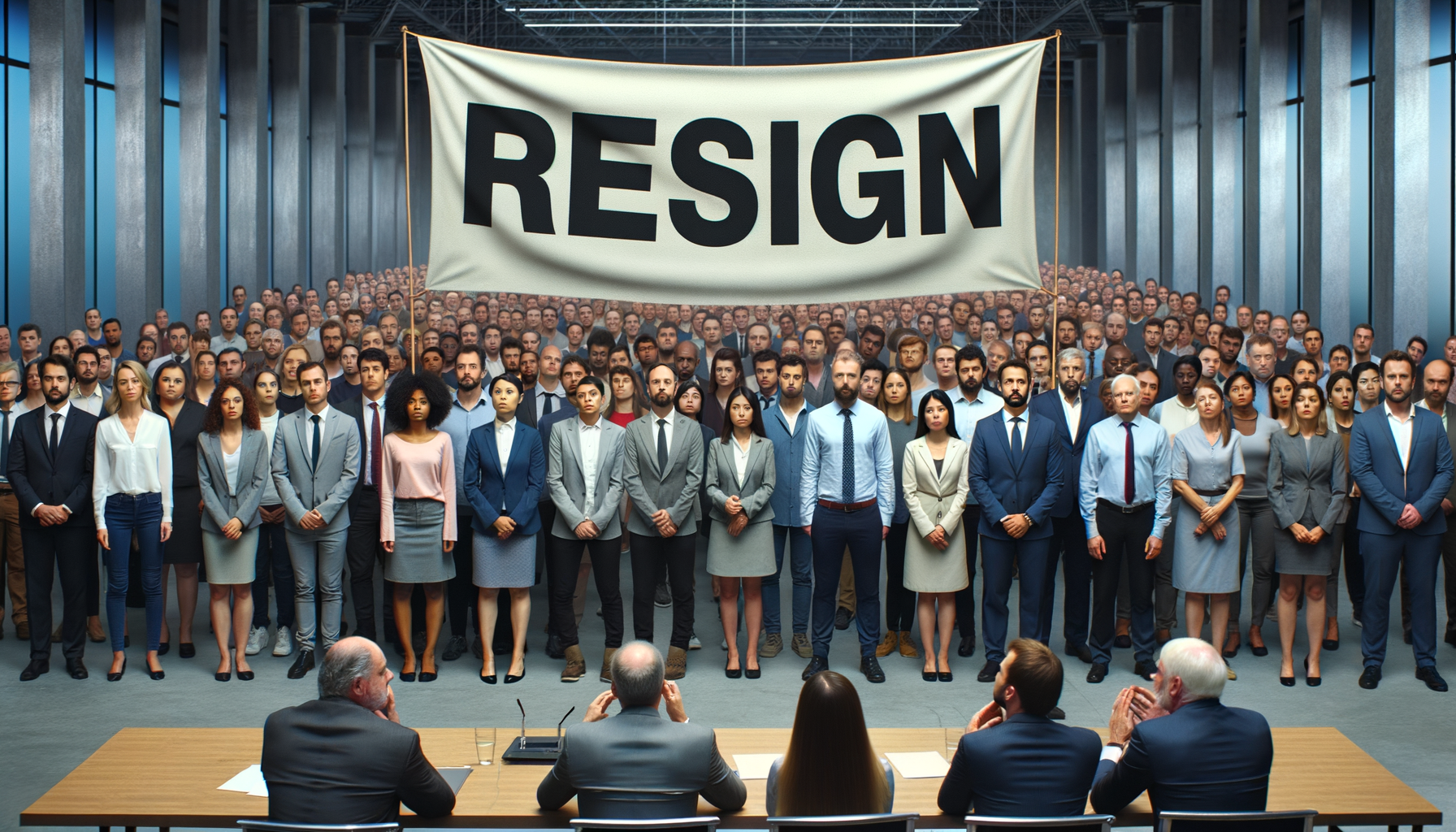
OpenAI Controversy: A Deep Dive into the Employee Ultimatum and Its Implications
In the dynamic world of artificial intelligence, OpenAI has emerged as a leading force, pushing the boundaries of what AI can achieve. However, the company recently found itself at the center of a controversy that has sent shockwaves through the tech community. In an unprecedented move, a significant majority of OpenAI employees have taken a stand against the company’s board, signaling a potential shift in the AI landscape.
The Employee Ultimatum
At the heart of the matter is a letter signed by 500 of the 700 employees at OpenAI, including key figures like co-founder Ilya Sutskever. The employees are demanding the resignation of the current board members, citing concerns that have yet to be fully disclosed to the public. This bold move by the employees underscores a deep-rooted tension within the organization and raises questions about the future direction of OpenAI.
What Led to the Demand?
While the specifics of the employees’ grievances remain unclear, such a large-scale demand for board resignation suggests systemic issues within the company’s governance or strategic vision. It’s possible that internal disputes over the ethical considerations of AI development, transparency in decision-making, or the direction of the company’s research may have contributed to this schism.
Implications for the AI Industry
The situation at OpenAI is more than just an internal conflict; it has far-reaching implications for the AI industry as a whole. As AI technology becomes increasingly integral to our lives, the governance and ethical considerations of companies like OpenAI come under greater scrutiny. The outcome of this standoff could influence not only the future of OpenAI but also set a precedent for employee governance in the tech sector.
OpenAI’s Response and the Road Ahead
The board’s response to this demand will be pivotal. If the board members choose to step down, it could lead to a radical restructuring of OpenAI’s governance. On the other hand, if they refuse, it could result in a mass exodus of talent, potentially stalling the company’s ambitious projects.
Regardless of the outcome, the AI community is watching closely. OpenAI’s next steps will likely shape the conversation around AI ethics, corporate governance, and the balance of power between employees and leadership in tech companies.
Understanding AI and Its Future
For those looking to understand the complexities of AI and the ethical debates surrounding its development, there are a number of resources available. Books like “Life 3.0: Being Human in the Age of Artificial Intelligence” by Max Tegmark and “Superintelligence: Paths, Dangers, Strategies” by Nick Bostrom offer insightful perspectives on the future of AI and its impact on humanity.
If you’re interested in exploring these topics further, consider purchasing these books through the following links:
- Life 3.0: Being Human in the Age of Artificial Intelligence
- Superintelligence: Paths, Dangers, Strategies
By delving into these resources, readers can gain a better understanding of the potential and pitfalls of AI, equipping themselves with the knowledge to navigate the ongoing debates within the industry.
Conclusion
The current situation at OpenAI is a reminder of the importance of ethical governance and transparent decision-making in the field of artificial intelligence. As the story unfolds, it will undoubtedly leave an indelible mark on the AI community and potentially change the course of AI development. Stay tuned as we continue to monitor this developing story and its implications for the future of artificial intelligence.
For updates on this and other AI-related news, make sure to follow our blog and stay informed about the latest developments in the world of technology.